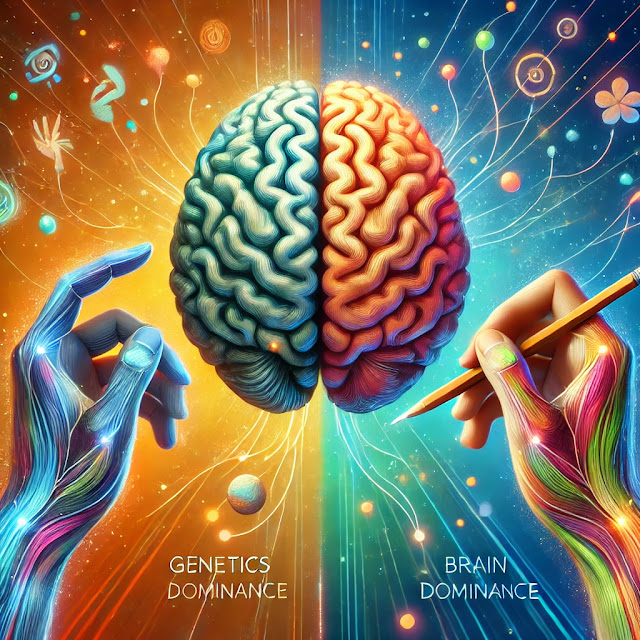Why Are Some People Left-Handed?
Have you ever wondered why some people are left-handed while the majority of the world uses their right hand? Left-handedness has intrigued scientists and researchers for centuries, as it represents a fascinating blend of biology, genetics, and environmental factors. In this article, we’ll delve into the science behind why some people are left-handed and explore the unique traits associated with this rare characteristic.
The Role of Genetics
While there isn’t a single gene responsible for determining handedness, genetics does play a significant role. Research shows that left-handedness tends to run in families. For instance, if one or both parents are left-handed, there’s a higher chance their child will also be left-handed. However, this isn’t guaranteed. Scientists believe that a combination of multiple genes contributes to whether a person is left-handed.
One gene, LRRTM1, has been associated with handedness, but the inheritance pattern is not straightforward. Instead of being determined solely by genetics, handedness is likely the result of a complex interplay between genes and other factors.
Brain Hemisphere Dominance
Handedness is linked to brain structure and function. The brain is divided into two hemispheres: the left and the right. Each hemisphere controls the opposite side of the body. For most people, the left hemisphere is dominant, which is why right-handedness is more common.
In left-handed individuals, the right hemisphere often plays a more significant role in controlling movement. Interestingly, left-handed people sometimes exhibit more symmetrical brain activity, which may influence how they process information and approach problem-solving.
Prenatal Influences
Handedness may begin to develop as early as in the womb. Studies suggest that the asymmetry in brain development during fetal growth influences whether a person will be left- or right-handed. Hormonal exposure during pregnancy, such as higher levels of testosterone, has also been linked to the likelihood of being left-handed.
Additionally, ultrasounds have shown that some fetuses tend to favor one hand over the other while still in the womb, which could indicate the early formation of handedness.
Environmental and Cultural Factors
While biology plays a significant role, environmental factors can also influence handedness. For instance, in the past, left-handedness was often discouraged in certain cultures. Children who naturally used their left hand were sometimes trained to use their right hand instead, which may have suppressed their natural preference.
In today’s world, however, left-handedness is more accepted and celebrated. This shift in societal attitudes allows left-handed individuals to embrace their unique trait without stigma.
Evolutionary Perspective
From an evolutionary standpoint, left-handedness may have offered specific advantages. For example, in competitive situations like combat or sports, being left-handed can provide an element of surprise since most opponents are accustomed to right-handed rivals. This could explain why left-handedness persists in the population despite being a minority trait.
Unique Traits of Left-Handed People
Left-handed individuals are often associated with creativity and innovation. Studies suggest that they may excel in fields requiring out-of-the-box thinking, such as art, music, and design. Additionally, many famous figures throughout history have been left-handed, including Leonardo da Vinci, Marie Curie, and Barack Obama.
Some researchers believe that the differences in brain activity among left-handed individuals contribute to their unique problem-solving abilities and creative approaches.
Fun Facts About Left-Handedness
Left-handers make up about 10% of the global population.
August 13th is celebrated as International Left-Handers Day.
Left-handed people are often better at multitasking and adapting to new situations.
Many left-handed individuals are ambidextrous to some degree, meaning they can use their non-dominant hand more effectively than right-handed people.
Conclusion
Left-handedness is a fascinating characteristic that highlights the diversity of human biology. Whether influenced by genetics, brain structure, prenatal development, or environmental factors, being left-handed is a unique trait that has its own set of advantages and quirks. As society continues to embrace and celebrate diversity, left-handers can take pride in their distinctive abilities and contributions to the world.
So, are you left-handed or know someone who is? Share your thoughts and experiences in the comments below!




